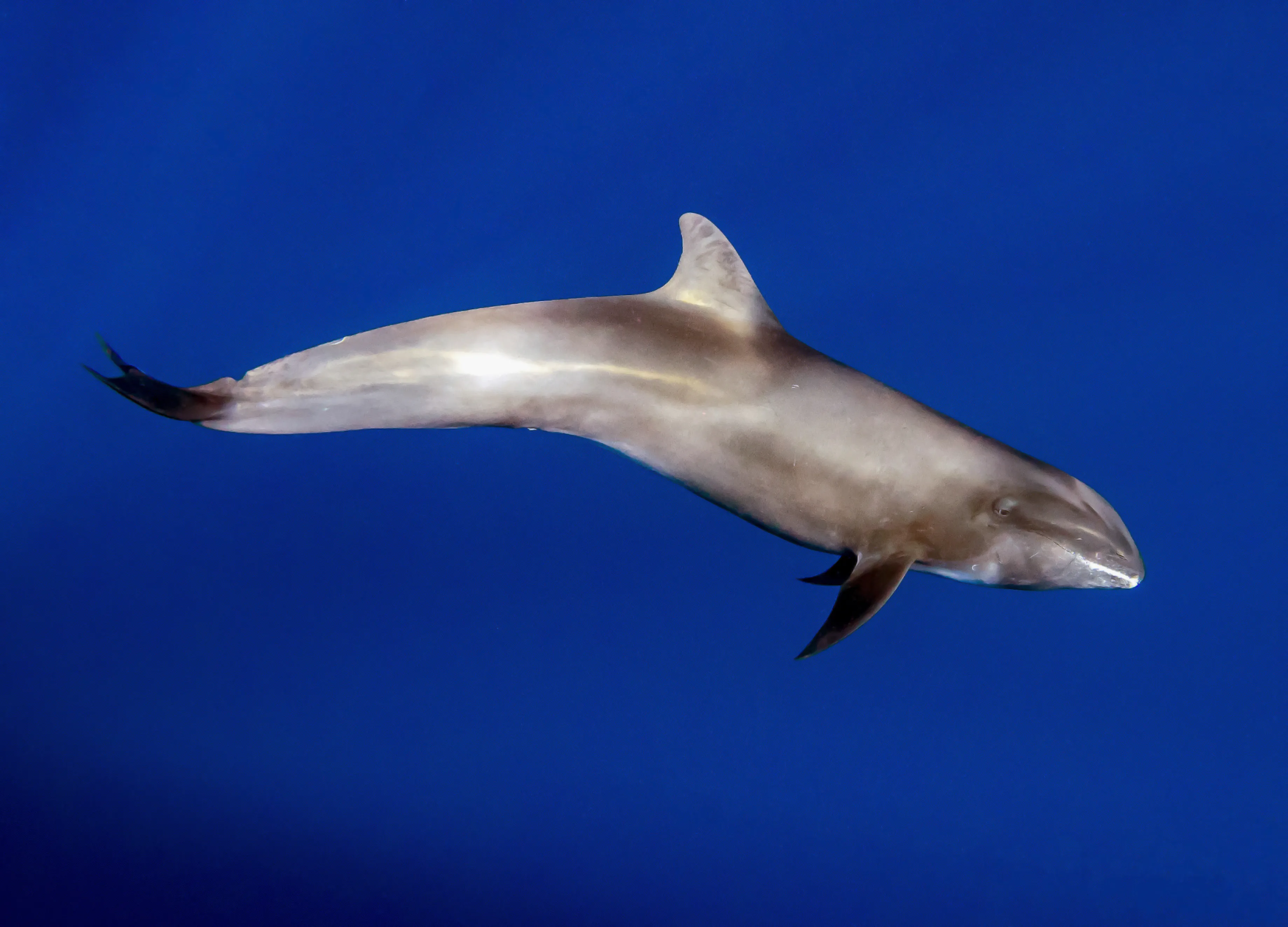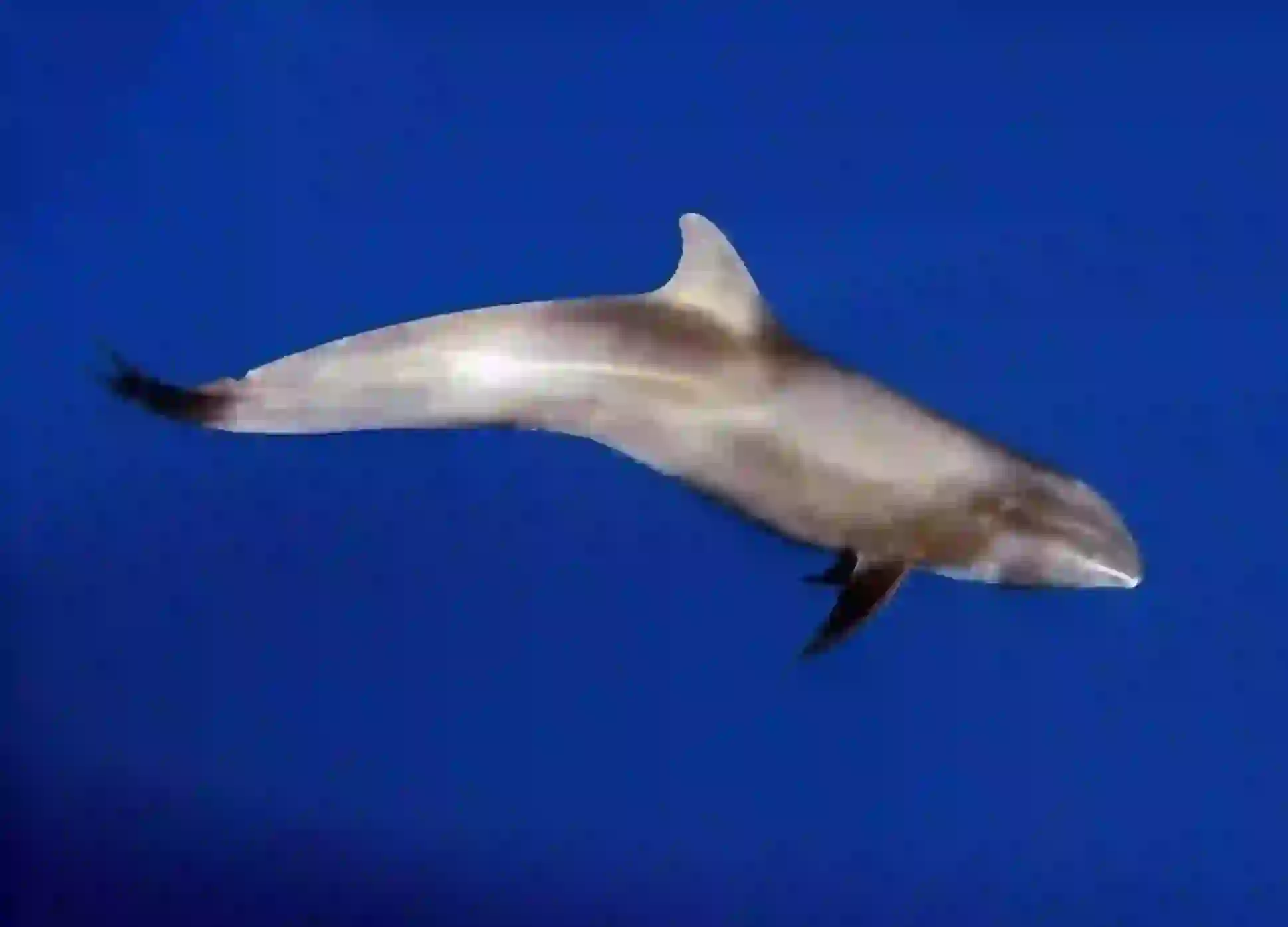
Melon-headed Whale
Melon-headed Whale
Melon-headed Whale
In the tropical and subtropical seas, the melon-headed whale, with its distinctive round head, travels the depths of the ocean. These enigmatic dolphins, often forming large pods of over a hundred individuals, are a sight to behold. Let's explore the ecology of the melon-headed whale and the challenges they face.
Melon-headed Whale Basic Infomation

| Property | Value |
|---|---|
| Scientific Name | Peponocephala electra |
| Taxonomic Status | ACCEPTED |
| Rank | SPECIES |
| Vernacular Names | Melon-headed Whale |
| Kingdom | Animalia |
| Phylum | Chordata |
| Class | Mammalia |
| Order | Cetartiodactyla |
| Family | Delphinidae |
| Genus | Peponocephala |
| Habitats | Tropical and subtropical deep waters |
| Conservation Status | Least Concern |

Size
They are about 8.9 feet (2.7 meters) long and weigh about 600 pounds (275 kilograms). They are a medium-sized dolphin. Females are slightly larger than males.

Lifespan
Their lifespan in the wild is estimated to be about 45 years.

Distribution
They are widely distributed in tropical and subtropical waters around the world. They prefer the deep waters of the open ocean and rarely come close to coastal areas. They are often seen near islands in the Pacific and Indian Oceans. In Japan, they are occasionally sighted around the Ogasawara Islands and the Izu Islands.
Melon-headed Whale Q&A

What kind of dolphin is the melon-headed whale?
The melon-headed whale is a species of oceanic dolphin belonging to the family Delphinidae and the genus Peponocephala.
As their name suggests, they have a distinctive round head, resembling a melon. In English, they are called 'melon-headed whales.' They have a dark grayish body color with only the tip of their mouth being white. Their dorsal fin is falcate (curved) and set higher on their backs compared to other dolphins. They are highly active dolphins, often seen leaping and spinning. They are also known for their high intelligence and social behavior, often forming large pods, sometimes numbering in the hundreds.

What do melon-headed whales eat?
Melon-headed whales are carnivores and primarily eat squid and small fish.
They are active at night, diving deep into the ocean to forage for food. They hunt cooperatively in groups, herding and encircling their prey. They also use echolocation to find their prey, emitting sound waves to understand their surroundings and pinpoint the location of their prey.

[Quiz!] Why do melon-headed whales dive deep?
Melon-headed whales dive deep to hunt for squid and small fish.
They can dive to depths of hundreds of meters. They have special physical adaptations for deep diving. For example, their lungs are flexible to withstand water pressure, and their blood can efficiently transport oxygen. They can also lower their heart rate when diving deep to conserve oxygen. These abilities allow them to remain active for extended periods in the deep ocean.

[Quiz!] Can melon-headed whales get stranded?
Yes, melon-headed whales can get stranded.
Stranding is when whales or dolphins swim into shallow water and become unable to return to the sea on their own. Although melon-headed whales use echolocation to navigate, sound waves do not reflect well in shallow waters, leading them to accidentally swim into shallows. They also often travel in pods, and if the leader mistakenly swims into shallow water, other members may follow, leading to mass strandings. If a melon-headed whale is stranded, immediate rescue is necessary. Returning them to the sea requires many people and heavy equipment. Stranded dolphins are often weak and require treatment from veterinarians.

[Quiz!] Are melon-headed whales endangered?
The melon-headed whale is listed as 'Least Concern' on the IUCN (International Union for Conservation of Nature) Red List.
This means they are not currently considered endangered. However, their numbers may be declining due to marine pollution, bycatch from fisheries, and collisions with ships. Protecting melon-headed whales requires protecting the marine environment and further research to understand their population dynamics.

Would you like to become a part of the 'Animalbook.jp'?
Turn your knowledge into Q&A and share it with the world. ※Publication will be activated after purchase. Let's share information together!
Melon-headed Whale Type of List

Characteristics of Melon-headed Whales
- Round head
- Falcate (curved) dorsal fin set high on the back
- Dark grayish body with a white tip on the mouth
- About 8.9 feet (2.7 meters) long
- Weigh about 600 pounds (275 kilograms)
- Excellent deep divers
- Form large pods
- Least Concern (LC), but there are concerns about marine pollution, bycatch, and collisions with ships
Information
Congratulations! You are the first commenter!

Create Your Favorite List!
Melon-headed Whale
Save the animals you love! Build your own list to quickly revisit your favorites later.

Would you like to leave a comment?
※Please note: This is for the purchase of rights to post comments within the article.
Find Your Favorites!
Our shop offers a unique and attractive selection of goods themed around various animals.
Melon-headed Whale References
Melon-headed Whale Introduction of media used

Cyril di Bisceglie, CC BY-SA 4.0, ウィキメディア・コモンズ経由で

Help Enrich Our Animalbook.jp with Your Media!
We are constantly looking to expand and enrich our Animalbook.jp with amazing photos and videos of animals. If you have any media that you'd like to share, please contribute and help us showcase the beauty and diversity of the animal kingdom. Your submissions will be credited and featured in our encyclopedia, reaching a wide audience of animal lovers.


















